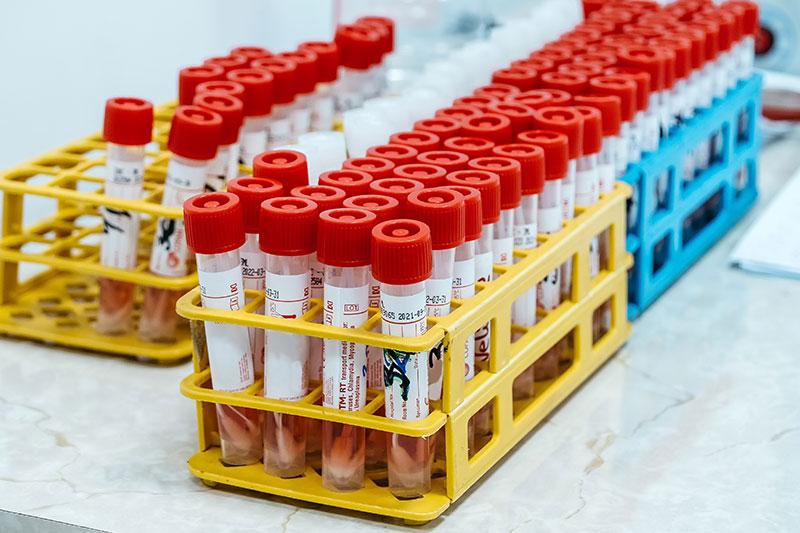Study Finds Accountability Drives Prosocial Behavior in Service Settings

Adding personal identifiers to voluntary service interactions has the potential to significantly increase participation in activities that have societal benefits.
That’s the finding of a new study co-authored by Claire Senot, Morton A. Aldrich Professor in Business and associate professor of management science at Tulane University’s Freeman School of Business. The study, “Hold Me Accountable: Anonymity and Prosocial Behavior in Services,” is forthcoming in the journal Manufacturing & Service Operations Management.
For the study, Senot and co-author Rob Glew, assistant professor of operations management at McGill University, analyzed data from a voluntary COVID-19 screening program at a major university in the United Kingdom. They found that when individual names were removed from the test kits distributed to students, participation dropped by 22%, suggesting that accountability plays a significant role in motivating individuals to engage in so-called prosocial behaviors, behaviors that benefit society but come at a personal cost.
“Including users’ names increases prosocial behavior,” says Senot. “In a world increasingly dominated by AI and where interactions between providers and users are limited, being able to use such a simple mechanism as names to instill accountability and increase prosocial behavior matters greatly.”
The screening program began in September 2020 during the COVID-19 pandemic. Over a period of about five months, the university offered weekly pooled PCR testing to students living in campus housing. Initially, each kit was personalized with the names of students assigned to a specific household. Later, to improve efficiency, the university introduced generic kits labeled only with alphanumeric codes that could be used by any resident in the household. This natural experiment allowed researchers to isolate how anonymity affected users’ willingness to engage in a prosocial behavior. While the change reduced waste and improved distribution, it also removed a key behavioral nudge: the visible presence of an individual’s name.
The study also revealed that social dynamics play a role in moderating the effects of anonymity. In larger groups of up to 10 individuals, the negative impact of anonymity was less pronounced, suggesting that social pressure can partially substitute for accountability to the service provider.
“Social pressure in larger groups partially substituted for the reduced accountability from removing names,” Senot and Glew say. “That’s an insight that can help mitigate reduced accountability in setting where anonymity is preferred.”
The findings have implications for a wide range of services that rely on prosocial behaviors, everything from clinical trials and blood donation centers to bike sharing schemes and peer-to-peer lending platforms. Managers of these and similar services may be able to improve user participation and cooperation by implementing accountability measures.
The researchers specifically cite self-service checkout aisles. In environments where theft is a concern, requiring customers to sign in with a loyalty account or providing personalized interaction could reduce anonymity and foster greater accountability, potentially decreasing dishonest behavior.
“For managers, we emphasize the value of accountability to the service provider as a motive for prosocial behaviors such as honesty and cooperation,” Senot and Glew note. “For policymakers, we provide insights into designing healthcare screening and public interaction services.”
The researchers add that the effect of removing names was long-lasting rather than temporary, suggesting that service design decisions can have enduring consequences for user engagement.
“As organizations increasingly seek to encourage cooperative behaviors among their users and customers, this study provides evidence that simple accountability mechanisms can significantly impact prosocial behavior,” Senot and Glew say. “By understanding and leveraging these psychological factors, service providers can design more effective systems that enhance cooperation while meeting operational demands.”
Interested in advancing your education and/or career? Learn more about Freeman’s wide range of graduate and undergraduate programs. Find the right program for you.
Other Related Articles
- Research Notes: Matthew Higgins
- New study shows how personal profiles transform social media customer service
- Research Notes: Claire Senot and Yatish Hegde
- Research Notes: Yang Pan
- CNET: I Asked AI Chatbots About Problem Gambling. Then They Gave Me Betting Advice
- Three honored with Freeman teaching awards
- Freeman researcher helps create open-source AI that rivals industry leaders
- Research Notes: Yumei He
